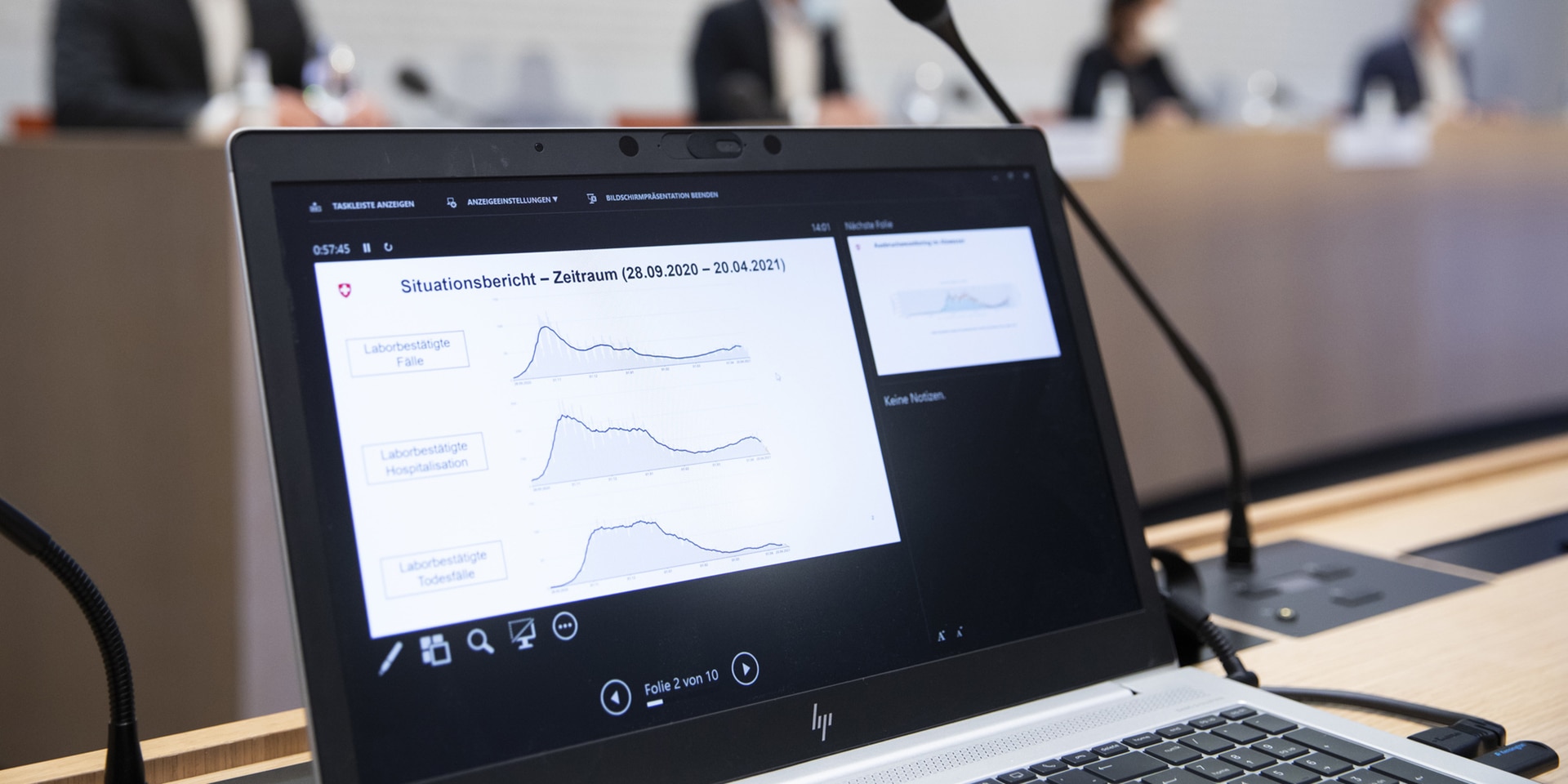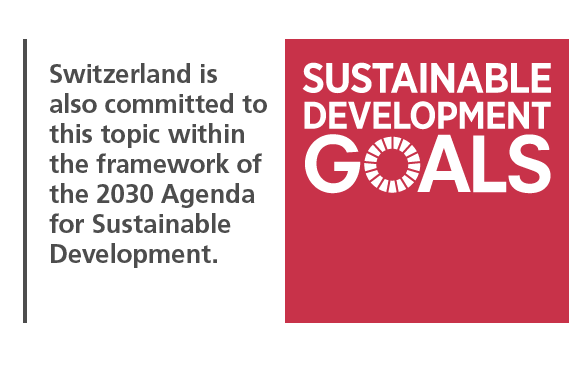Rethinking the relationship between policymakers and statistics
Data collection and the production of statistics have evolved in recent years. The COVID-19 pandemic has forced statisticians to adapt again and again in order to be able to develop reliable and realistic indicators on global trends and developments. How is the relationship between policymakers and statistical offices evolving?

The relationship between statistics and political decision-making is always closer in crisis situations. What impact does this have on the work of statisticians? © Keystone
In early 2020, the world was thrown into a health crisis of unprecedented and unanticipated proportions. The pandemic has had a dramatic impact on the lives of millions of people around the world, forcing them to face a long period of uncertainty and sacrifice. COVID-19 has not only undermined our health systems – it has also forced the international community to slow down its efforts towards sustainable development. These far-reaching developments and the responses to them can only be assessed objectively by means of both qualitative surveys (which require adapting programmes) and quantitative surveys (which require producing indicators that translate what is happening into figures).

The numbers behind these trends are being widely circulated. The number of people living below the poverty line worldwide, the number of people suffering from malnutrition, the scale of immigration, greenhouse gas emissions, the youth unemployment rate, as well as various indicators used to calculate wage, generational and gender equality are all widely used to assess the state of the world we live in. These numbers are also being used as statistical indicators for evidence-based decision-making by government authorities. Statisticians are not the only ones who produce indicators and the numerical data that constitute the raw materials on which their work is based is frequently read and analysed by policymakers.
Public, independent and apolitical data
From this perspective, the collection of data and the production of statistics must be based on rigorous methodologies that ensure complete objectivity. André de Montmollin, a statistician at the Federal Statistical Office, notes: "Our work and its results are a public good. Statistical results must be published, regardless of what they reveal, and the FSO must remain a neutral and independent office."
As a public good, the production of statistics is completely independent of political agendas. Statistical production evolves within a purely scientific framework and its results are freely accessible, except for personal data subject to data protection rules. But in a number of areas, particularly in the field of digitalisation, there are such close links between political decision makers and statistical offices that it is worth asking how the relationship between them will evolve in the future.
Widening gap between policymakers' demand for statistics and requirement to meet demand
The close relationship between political decision makers and the producers of statistics is in constant flux. In view of this fact, the FSO and the FDFA will co-host the World Data Forum from 3 to 6 October 2021 in hybrid format. The World Data Forum aims to highlight the new challenges faced by statistical offices in Switzerland and around the world, such as securing the financing of data, the management of crises and leveraging the benefits of digitalisation. In these areas, there is an ever-widening gap between the demand for statistics from political decision makers and the requirement to meet that demand.
"It's clear that numerous statistical offices have been unable to produce statistics during crisis situations," notes Benjamin Rothen, head of the FSO's International and National Affairs Section. He adds: "We therefore need to reconsider how we can continue to provide policymakers with statistics and what new tools we can put in place to accomplish this task." According to Rothen, the pressure from the political world for better digitalisation and the creation of metadata catalogues – i.e. platforms that make it easier to locate existing data – is one of the challenges that need to be addressed.
In practice, for Switzerland this means being able to find in a single catalogue the data produced by all federal offices, for example the federal offices for public health, energy, and information technology and telecommunications. "Our concern is to understand how we can use the data from across the Federal Administration. This is a major change. We also need to think about how to finance such platforms," says Rothen.
The private sector also has a role to play
We are therefore witnessing a growing shift in focus from statistics to data. Specifically, this means understanding what data are available at cost-effectively. This is another area where the private sector has begun to play an important role in recent years – especially in times of crisis.
"Big multinational companies sometimes collect data on specific areas. In some countries, big private companies are able to collect data that can be used by governments to produce public statistics. Data collected by private companies is no substitute for public statistics but can often be used to complement them," explains Rothen. Although some multinationals provide data free of charge to governments, NGOs and universities, it is also worth asking whether such cost-free data are independent and therefore impartial, adds Rothen. We must therefore take a close look at this complex interrelationship between the private sector, the political world and statistical offices. These relationships are not new, but they call for closer collaboration between these three actors.
Better understanding of statistical data at the heart of the World Development Report 2021
The COVID-19 crisis has raised new questions about the value and uses of statistical data in today's world. The data produced by the world's statistical offices have enormous potential to contribute to research for sustainable development. But what new challenges have emerged as a result of the COVID-19 crisis in this field and what major risks will be encountered in the production of statistics in the future?
In a new report, the World Bank discusses the relationship between people and statistical survey data. On 14 September 2021, the World Bank co-organised with the SDC a virtual event entitled "Leveraging the power of data for better lives: World Development Report 2021" in which it called for a new social contract around data at the international level. This proposal is also the main focus of a new massive online open course (MOOC) the World Bank has put together on the basis of the report.



